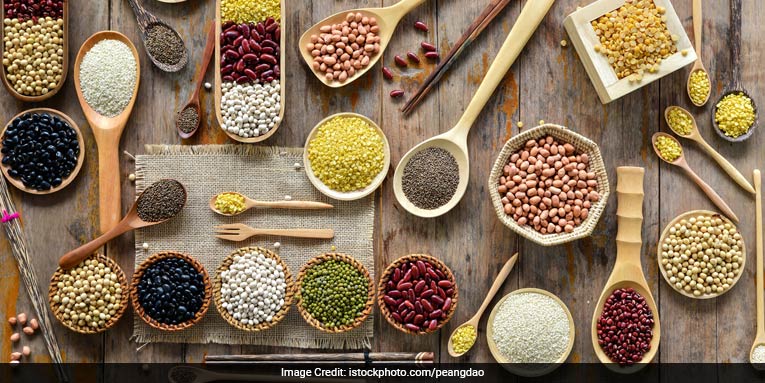Nutritional Foods To Keep You Healthy During Pregnancy

Highlights
- Pregnancy food requires an amalgamation of various nutrients
- Doctors suggest intake of short meals at every two hours
- Whole grains come handy when there's requirement to increase calorie intake
Pregnancy can take a serious toll on mental and physical health. To keep yourself and the unborn baby healthy and charged up it is essential to have well-balanced and nutritious food. Pregnancy food requires an amalgamation of various nutrients ranging from vitamins, proteins, minerals to calcium. Doctors suggest intake of short meals at every two hours to keep the baby hale and hearty. During the 40 weeks of pregnancy cycle, it is vital that you eat the right kind of food.
Here is a list of 5 foods that must be included in the pregnancy diet.
1) Eggs

Eggs are considered to be the best food in pregnancy as it contains all kinds of nutrients. In addition to fats and minerals, eggs have a lot of quality proteins and vitamins. Most importantly eggs are rich in choline (a water soluble vitamin) which helps in developing a healthy brain and promotes baby’s overall growth. However eggs must be cooked properly as raw ones may contain salmonella bacteria that may lead to nausea, abdominal cramps and vomiting.
2) Dairy Products

Dairy products are a good source for vitamin B12, calcium, protein, magnesium and zinc. Include foods like buttermilk, cheese, yogurt, whole or skimmed milk to cut down pregnancy complications like gestational diabetes, vaginal infections and preeclampsia- a condition developed due to high bold pressure.
3) Low Fat Meats

High in iron, proteins, choline and other B-vitamins, lean meats like chicken, beef and pork must be included in the pregnancy diet. Iron is essential not only to supply oxygen to all cells of the body but also necessary for maintaining hemoglobin levels. Lack of can iron can develop risk of a premature birth and low birth weight.
4) Dark Leafy Vegetables

Leafy vegetables like Spinach, kale and broccoli provide essentials vitamins like A, C, and K. They also supply calcium, iron, and potassium. The high fibre content acts as a wall against constipation, a common problem during pregnancy.
5) Whole grains

Whole grains come handy when there is requirement to increase calorie intake especially during the second and third trimesters. Whole grains have high amount of iron, folic acid, fibre and B-vitamins. Choose your portion of whole grains from a wide range of foods- oats, barley, brown rice, whole wheat pastas and quinoa.
6) Cereals and Pulses

Pulses like dals, legumes and cereals like wheat, bajra, jowar provide the required amount of proteins and minerals to the body. Pulses help in lowering blood cholesterol levels.






Comment